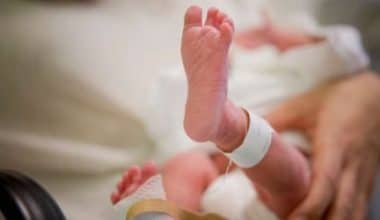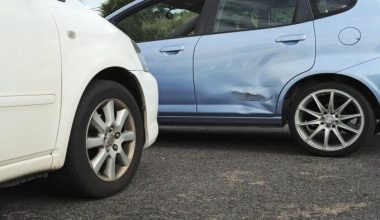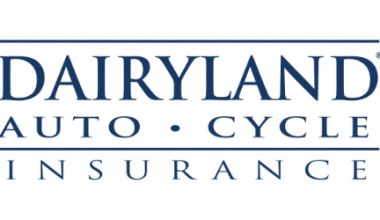Personal Injury Protection (PIP) insurance is an added coverage to auto insurance policies, providing benefits in case of an accident. Auto PIP insurance, also known as no-fault insurance, provides coverage for medical expenses, lost wages, and other related costs after a car accident, regardless of fault. After an accident, personal injury protection is a sort of vehicle insurance that kicks in to cover basic home services like house cleaning as well as medical expenses for you and your passengers, as well as lost income. In no-fault jurisdictions, it is normally required, while in other states, it could be completely absent or voluntary. You must comprehend how it operates in order to decide if it is worthwhile. There are some helpful hints in this post.
What is PIP Insurance?
Personal Injury Protection (PIP) insurance is a type of coverage that can be added to an auto insurance policy. It provides benefits to policyholders and their passengers in the event of an auto accident, regardless of who is at fault. PIP insurance is available in certain states and is designed to cover medical expenses, wage loss, loss of services, funeral expenses, and survivor’s benefits.
Factors to Consider When Choosing PIP Insurance
When selecting Personal Injury Protection insurance, it’s important to consider several factors to ensure you have the right coverage for your needs. Here are some key factors to consider:
#1. Medical Coverage Level
Compare the levels of medical coverage that various PIP insurance policies offer. Consider the potential medical implications of choosing a lower level of PIP coverage.
#2. Policy Benefits and Risks
Review the forms provided by insurance companies that describe the benefits and risks of the coverage options. Understand the specific benefits and limitations of each policy.
#3. Deductible
Consider the deductible amount associated with the PIP insurance policy. A deductible is the amount you must pay out of pocket before the insurance coverage kicks in. Determine the deductible that aligns with your financial situation and preferences.
#4. Other Health Insurance Coverage
If you already have health insurance coverage, evaluate whether you need PIP insurance or if your existing coverage is sufficient. Some individuals may choose to waive PIP coverage if they have adequate health insurance.
Compare the premium costs of different PIP insurance policies. Premiums can vary based on factors such as your driving record, location, and the type of vehicle you drive.
#6. Coverage Limits
Understand the coverage limits of the PIP insurance policy. Ensure that the coverage limits are adequate to cover potential medical expenses, lost wages, and other related costs in the event of an accident.
#7. Additional Benefits
Some PIP insurance policies may offer additional benefits such as coverage for funeral expenses, survivor’s benefits, replacement services, or essential services. Consider whether these additional benefits are important to you.
#8. State Requirements
Be aware of the specific PIP insurance requirements in your state. Each state may have different minimum coverage requirements and regulations regarding PIP insurance.
#9. Insurance Provider
Consider the reputation and reliability of the insurance provider. Research customer reviews, financial stability, and customer service ratings to ensure you choose a reputable insurance company.
#10. Consultation with an Insurance Agent
If you have specific questions or need guidance, consider consulting with an insurance agent who can provide personalized advice based on your circumstances.
Auto PIP Insurance
Auto PIP (Personal Injury Protection) insurance is a type of coverage that helps cover medical expenses, lost wages, and other related costs after a car accident, regardless of who is at fault. PIP insurance is also known as “no-fault insurance” because it provides coverage regardless of who caused the accident. It covers medical bills, lost wages, funeral expenses, and survivor’s benefits for policyholders’ dependents.
Auto PIP insurance does not cover the following:
#1. Property Damage
PIP insurance generally does not cover damage to your vehicle or other property. It is primarily focused on covering medical expenses and related costs resulting from injuries sustained in a car accident.
#2. Non-Medical Expenses
PIP insurance may not cover non-medical expenses such as vehicle repairs, towing costs, or damage to other people’s property. Other types of auto insurance, such as liability coverage or collision coverage, typically cover these costs.
#3. Excess Medical Expenses
PIP insurance may have coverage limits, meaning it may not cover all medical expenses beyond a certain amount. If your medical expenses exceed the coverage limit, you may need to rely on other health insurance coverage or pay out of pocket.
#4. Injuries Outside of Auto Accidents
PIP insurance is primarily designed to cover injuries sustained in auto accidents. It may not cover injuries that occur outside of a car accident, such as injuries from slips and falls or other non-vehicle-related incidents.
#5. Intentional Acts
It does not cover injuries resulting from intentional acts, such as injuries sustained during the commission of a crime or injuries caused by intentional self-harm.
#6. Auto Body Damage
PIP insurance does not cover the cost of repairing or replacing your vehicle if it is damaged in an accident. This type of coverage is typically provided by collision insurance, which is separate from PIP insurance.
#7. Damage to Other Property
PIP insurance is designed to cover personal injury expenses and does not extend to cover damage to other people’s property. For coverage for damage caused to another person’s property, you would need property damage liability insurance.
#8. Coverage Beyond Policy Limits
PIP insurance has coverage limits, which vary depending on the policy and state regulations. If your medical expenses exceed the coverage limits of your PIP insurance, you may need to rely on other health insurance coverage to pay for the remaining expenses.
What Does PIP Insurance Cover?
PIP (Personal Injury Protection) insurance covers various expenses related to injuries sustained in a car accident.
Benefits of Personal Injury Protection Insurance
Personal Injury Protection Insurance offers several features that provide coverage and benefits in the event of an auto accident. Here are the key features of PIP coverage:
#1. Medical Expense Coverage
PIP insurance helps cover medical expenses resulting from an auto accident. This includes costs for hospital stays, surgeries, doctor visits, medications, and rehabilitation.
#2. Wage Loss Compensation
PIP insurance can provide benefits to compensate for lost wages if you are unable to work due to injuries sustained in an accident. This feature helps ensure that you can still receive income while recovering.
#3. Rehabilitation Costs
PIP insurance may cover the costs of rehabilitation services, such as physical therapy, occupational therapy, and chiropractic care, to aid in your recovery after an accident.
#4. Funeral Expenses
In the unfortunate event of a fatal accident, PIP insurance can help cover funeral, burial, or cremation expenses. This feature provides financial support to the family of the deceased.
#5. Survivor’s Benefits
PIP insurance can provide survivor’s benefits to replace lost income for dependents in the event of a fatal accident. This feature helps ensure financial stability for the surviving family members.
#6. No-Fault Coverage
PIP insurance is often referred to as “no-fault” coverage because it pays benefits regardless of who is at fault in the accident. This means that even if you caused the accident, you can still receive benefits from your PIP insurance.
#7. Coverage for Passengers and Pedestrians
PIP insurance covers not only the policyholder but also passengers and pedestrians involved in an accident. This feature extends the benefits to others affected by the accident.
#8. Replacement Services
PIP insurance may cover the cost of hiring someone to perform tasks that the injured person would have done themselves, such as childcare or housekeeping.
#9. Primary and Secondary Coverage
In some cases, if you have health insurance, your health coverage provider may be designated as your primary source of medical care in the event of an accident. The insurance would then provide secondary coverage to cover any remaining expenses not covered by your health insurer.
#10. Ambulance and Transportation Costs
PIP insurance can cover the costs of ambulance services and transportation to and from medical facilities for necessary treatments. This helps ensure that you receive prompt and appropriate medical care.
Do I Need PIP Insurance If I Have Health Insurance?
If you have health insurance, you may wonder if you need personal injury protection. The decision of whether you need PIP insurance if you have health insurance depends on various factors, including
#1. Primary Source of Medical Care
In some cases, if you have health insurance, you may be able to designate your health coverage provider as your primary source of medical care in the event of an automobile accident. This means that your health insurer would pay first for medical expenses related to the accident, and your auto insurer would provide secondary coverage through PIP.
#2. Adequate Coverage
It’s important to evaluate whether your health insurance provides adequate coverage for injuries sustained in an auto accident. Compare the benefits provided by your health insurance to those offered through PIP coverage. Consider factors such as coverage limits, deductibles, and any exclusions or limitations that may apply.
Choosing your health insurer for the PIP option may reduce your premium. However, it’s crucial to ensure that your health insurance coverage would provide sufficient coverage if you were injured in an auto accident.
#4. Passengers and Non-Family Members
PIP insurance may provide coverage for passengers in your vehicle or non-family members who do not have their own insurance policy. If you have PIP coverage, it can help cover your medical expenses in the event of an accident.
#5. Immediate Coverage
PIP insurance provides immediate coverage for medical expenses and other costs related to injuries sustained in a car accident. It eliminates the need to wait for health insurance claims to be processed, ensuring prompt access to necessary medical treatment.
#6. Coverage for Non-Medical Expenses
PIP insurance covers not only medical expenses but also other costs such as lost wages, funeral expenses, survivor’s benefits, and replacement services. Health insurance does not provide coverage for these non-medical expenses.
#7. Coverage for Passengers
PIP insurance may provide coverage for passengers in your vehicle or non-family members who do not have their own policy. Health insurance may not cover injuries sustained by passengers in your vehicle.
#8. Coverage Limits
PIP insurance often has higher coverage limits compared to health insurance. This can be beneficial if you require extensive medical treatment or if your health insurance has coverage limitations or high deductibles.
#9. Coordination of Benefits
PIP insurance can work in coordination with your health insurance to provide comprehensive coverage. This may act as a primary source of coverage for auto accident-related injuries, while health insurance can cover other medical expenses unrelated to auto accidents.
#10. State Requirements
In some states, like Florida, it is mandatory regardless of whether you have health insurance. It’s important to understand the specific requirements in your state and ensure compliance with the law.
What Does PIP Mean for Your Insurance?
PIP stands for Personal Injury Protection, which is a type of auto insurance coverage. This helps cover expenses related to injuries sustained in a car accident, regardless of who is at fault. It typically covers medical expenses, lost wages, funeral expenses, essential services, and rehabilitation services. However, there are limitations to the insurance coverage. These limitations include coverage limits, deductibles, exclusions for non-medical expenses and property damage, and the rejection of coverage in some states.
What Does PIP Insurance Cover in Florida?
In Florida personal injury protection covers medical expenses, lost wages, funeral expenses, essential services, and rehabilitation services resulting from a covered injury. It provides coverage for 80% of necessary and reasonable medical expenses up to $10,000, regardless of fault. The coverage limits and specific terms may vary, so it’s important to review your policy and consult with your insurance provider for the exact details of your PIP insurance in Florida.
What Does Liability Insurance Cover?
Liability insurance coverage protects you financially if you are responsible for someone else’s injuries or property damage. The coverage includes bodily injury liability, which covers injuries you cause to someone else, and property damage liability, which covers damage you cause to someone else’s property. Liability coverage applies to various situations, such as accidents involving vehicles, where it covers injuries to others, damage to other vehicles, and damage to someone else’s property. It may also cover legal expenses related to accident-related lawsuits. However, liability insurance does not cover your own injuries or property damage.
Is PIP Insurance Required In Washington State?
Yes, Personal Injury Protection insurance is optional in Washington State. By law, insurance companies are required to offer PIP coverage to policyholders, but individuals have the choice to accept or reject it. If PIP coverage is not explicitly rejected in writing, the insurance company will add it to the policy and charge for it. PIP coverage in Washington State can help pay for medical and hospital expenses, wage loss, loss of services, and funeral expenses resulting from an auto accident, regardless of fault. It also covers non-family members for work that the injured person cannot perform, such as household chores. The minimum PIP coverage offered by insurance companies in Washington state is $10,000
Is PIP Good Insurance?
PIP insurance can be considered good insurance in certain situations. PIP coverage helps cover expenses such as medical bills, lost wages, and replacement services for tasks you cannot perform due to injuries sustained in an accident, regardless of fault. It can provide financial support and peace of mind by helping to cover these expenses. PIP insurance is particularly beneficial in states with no-fault insurance laws, where it is required, as it allows individuals to make smaller injury claims on their own PIP insurance.
How Does a PIP Work?
Personal Injury Protection is insurance coverage that helps pay for medical expenses, lost wages, and other costs resulting from injuries sustained in an accident. This coverage is often associated with no-fault insurance states, where each party’s insurance company pays for their expenses regardless of fault. Also, it covers medical expenses, provides compensation for lost wages, and may cover other related expenses such as funeral costs and essential services.
Conclusion
Auto PIP insurance does not cover property damage, non-medical expenses, excess medical expenses, injuries outside of auto accidents, intentional acts, or auto body damage. It may have coverage limits and may require additional health insurance or out-of-pocket payments. PIP insurance covers medical expenses, lost wages, funeral expenses, and survivor’s benefits related to injuries sustained in a car accident. It provides coverage regardless of who is at fault for the accident. Personal injury protection insurance is essential for those with health insurance in case of an auto accident. It may also cover passengers and non-family members and have higher coverage limits compared to health insurance.
- IS FLORIDA A NO-FAULT STATE: Who Pays for Car Accident & Property Damages in Florida
- CAR LIABILITY INSURANCE: Coverages, Cost, and Cheap Options
- NO-FAULT INSURANCE IN USA: How Does It Work
- MOTORCYCLE ACCIDENT LAWYER: How to Hire the Best Motorcycle Lawyer






